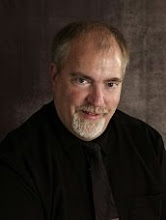No One Mourns the Wicked

Our country awoke this morning to the welcome news that Iraq’s leading terrorist, Al-Qaeda chief Al-Zarqawi, was killed in an air raid on his safe house. His body was positively identified by fingerprints, facial appearance, and scarring. Fittingly, the newly elected Prime Minister of Iraq made the announcement, which precipitated at least a minute of cheering and celebration from the assembled journalists. It can only be hoped—and prayed—that this death will be viewed as a turning point in the Iraq conflict, and that his jihadist followers will be convinced of the futility of their efforts, and that a democratic and free Iraq continue to emerge in the Middle East. Robespierre’s death marked the end of the French Revolution’s Reign of Terror. Hitler’s suicide meant the almost immediate capitulation of Nazi Germany. Will this be a case where the followers believe so much in the cause that they fight on, or are they going to scatter like sheep without a shepherd?
My family and I got to see the musical Wicked in Detroit on Sunday. This Stephen Schwartz-written show (Godspell, Children of Eden, Hunchback of Notre Dame) tells the familiar story of the Wicked Witch of the West from an unfamiliar perspective. From the outset, the play recasts the familiar “good” characters (Glinda, the Wizard, the Munchkins) as “bad,” and the “bad” characters (Elphabah—the Wicked Witch of the West and her sister Nessarose, the Wicked witch of the East) as “good.” The Wizard’s showcase number, They Call Me Wonderful, implies that there is no such thing as “good” and “evil,” only the perspective from which the story is told.
History is like that. Some say that those who win the wars get to write the history. From the winner’s vantage point, your opponent was “wicked.” World War I is a case in point. France won, Germany lost, ergo, France good, Germany wicked. In the United States’ war against Mexico, President Polk won—and added the so-called Mexican Cession (the vast majority of the present southwestern U.S.) to the union; ergo, U.S. good, Mexico wicked. But the complexities of European geopolitics during the late 1800’s and early 1900’s, and the obvious war of conquest waged by the US against our southern neighbors demand the analysis of history from multiple perspectives, not only that of the war’s winners.
I’ve been reading a new history of the Pilgrims and Puritans of the Plymouth and Massachusetts Bay Colonies called Mayflower. In it, author Nathaniel Philbrick retells not only the well-known (if not embellished) tale of Squanto and the first Thanksgiving. He also discusses the labyrinthine challenges of dealing with the Indian sachems, whose skill at manipulation mirrored the Indians’ battlefield strategy of concealment instead of meeting the enemy on the open field. Eventually, the Indian population rose up in widespread acts of brutality, burning villages and scalping the English colonists, in a conflict known as “King Philip’s War” or “Metacom’s rebellion.” Although they fought bitterly, once King Philip was gone, the Massachusetts Indians lost their will. It was hopeless, futile, and became a merciless bloodbath as the English refused to differentiate between ally and foe—the only good Indian was a dead Indian.
From whose perspective can you read this history? Do you take a position hostile to Europeans and act as if the Indians were somehow “noble savages” who were peaceful and warm people until the English came? Do you write history from the vantage point of the victors and relate the acts of the Indians as treacherous, hypocritical, deceitful, manipulative, and demanding of retribution? Do you say that the Indians were only fighting for “their land,” or do you say that the Puritans paid a fair price for the land and so they were fighting for “their land?”
Now what about Al-Zarqawi? Many in the media will be quick to portray him as a hero, a martyr, one who tried to fight for Arab land (Palestine) against the Zionist imperialists (US and Britain). Are he and the other members of Al-Qaeda simply like the Native Americans of long ago, who committed violent acts of terror and murder in an attempt to reclaim what they had lost? Your perspective and worldview will interpret the story and its characters.
In chapter 2 of How Should We Then Live, we move into the Middle Ages. For those who lived in the time of the Renaissance and the Enlightenment, this was a “Dark Age” because of its domination by the Catholic Church’s authority. As you answer the discussion questions in the comments section, try to develop a sense of balance and perspective in pointing out the negative (the influx of humanistic elements into the church) with the positive contributions of this era.


<< Home